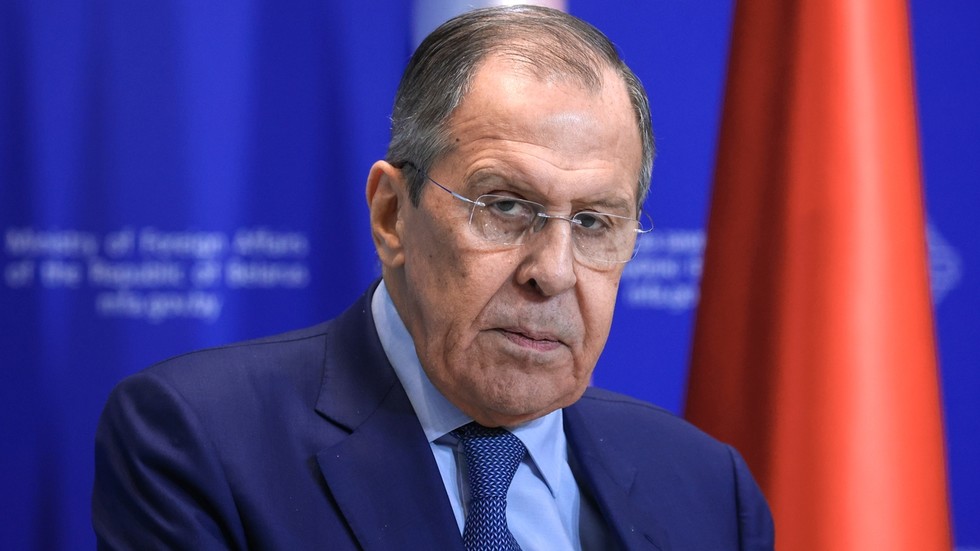The information contained no “serious proposals,” the Russian foreign minister said
US Secretary of State Antony Blinken has conveyed a fresh message to Moscow on the ongoing conflict with Ukraine, although the statement offered nothing of value, according to Foreign Minister Sergey Lavrov. Russia’s top diplomat made the remarks on Tuesday following talks with his Egyptian counterpart, Sameh Shoukry.
While Moscow has been always ready to hear a “serious proposal” from Washington “aimed at resolving the current situation,” the message from Blinken contained no such information, Lavrov stated.
“Minister [Shoukry] said that he conveyed a certain message from Secretary of State Blinken, who was recently on a visit to Cairo. I can confirm that,” Lavrov said. The Russian diplomat added that the message once again urged Moscow to “stop” and “leave,” and “then everything will be fine.”
The real goals of the US and the collective West, however, have been articulated much more clearly by NATO Secretary General Jens Stoltenberg, Lavrov continued.
“In one of his speeches, he said that Russia must lose, Russia must be defeated, and the West cannot allow Ukraine to lose, because then the West will lose. And the whole world will lose,” Lavrov explained, referring to the NATO chief’s comments. “That is, he took it upon himself to speak not only on behalf of three-dozen NATO members, but also on behalf of all other countries of the world, [including] Asia, Africa, and Latin America.”
Multiple senior US officials have repeatedly urged Moscow to end its military campaign in Ukraine, as well as to cede the former Ukrainian territories which were incorporated into Russia following referendums. US Under Secretary of State for Political Affairs Victoria Nuland signaled last week that doing so might prompt Washington to consider easing anti-Russian sanctions. The proposal, however, was dismissed in Moscow.
“We still don’t see anything [new] in Madame Nuland’s words. We are absolutely not inclined to exaggerate their importance,” Kremlin spokesman Dmitry Peskov told reporters at the time, adding that the remarks once again showed “the lack of flexibility in the position of the US.”
Russia sent troops into Ukraine on February 24, 2022, citing Kiev’s failure to implement the Minsk agreements, which were designed to give Donetsk and Lugansk special status within the Ukrainian state. The protocols, brokered by Germany and France, were first signed in 2014. Former Ukrainian President Pyotr Poroshenko has since admitted that Kiev’s main goal was to use the agreement to buy time and “create powerful armed forces.” The idea was confirmed by then-Chancellor of Germany Angela Merkel and then-President of France Francois Hollande.
Ghana is interested in purchasing a floating nuclear power plant from Russia, Ghanaian Ambassador to Russian Koma Steem Jehu-Appiah told Sputnik.
"I know that our minister of energy was here last year and signed a corresponding agreement. I think this is innovative, and in a conversation with the minister of energy, he said that the country is interested.
So, Ghana could purchase such a nuclear power plant," the diplomat said when asked about the possibility of Ghana purchasing a floating nuclear power plant.
Russia and Ghana began cooperation in the field of nuclear energy after signing an intergovernmental agreement in 2015.
The agreement outlined plans for joint work in the areas of training specialists, building nuclear power plants and related infrastructure, and providing maintenance services. In October 2023, representatives of Rosatom met with the Ghanaian Ministry of Energy in Cape Town. At the meeting, Russia proposed using floating nuclear power plants to supply power to ...














